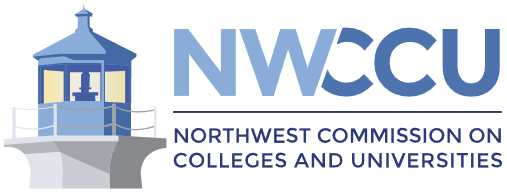Proficiency Based Education Summer Symposium
We are excited to announce a summer institute to bring in multiple communities to discuss the current state of Proficiency-Based Education in the state of Montana.
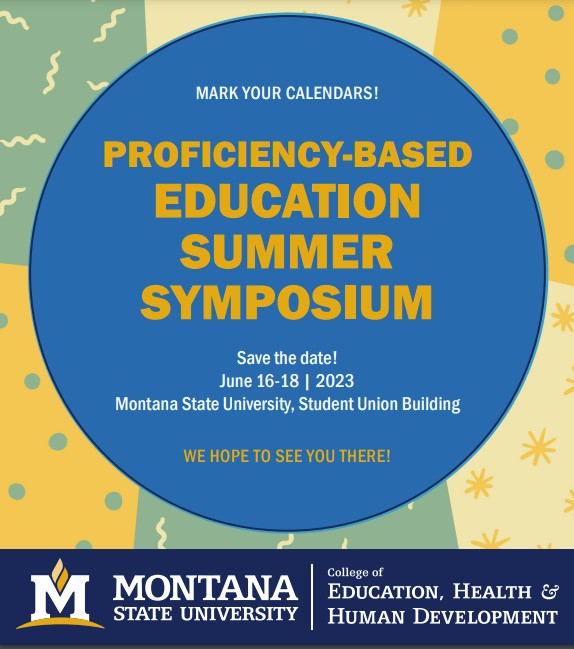
Conference Details
The conference will be held in the Strand Union Building (SUB) on the Montana State University, Bozeman campus from Friday, June 16 through Sunday, June 18. Friday evening will consist of a keynote talk by a nationally renowned expert followed by a reception. Saturday will include panel discussions, short talks, workshops, and collaborative sessions. Sunday’s events will include additional short talks, networking opportunities, and a final keynote presentation.
Registration
Registration for the conference is now open! We invite you to register for the event early!
OPI Renewal Units
We are excited to announce that attendees will earn up to 15 OPI renewal units for attending the full conference. More details will be provided at the event!
Keynote Speakers
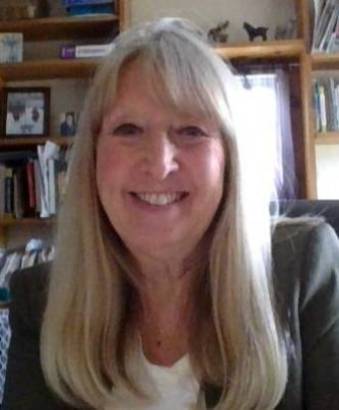
Dr. Karin Hess
Karin Hess, author of the Hess Cognitive Rigor Matrices, is a former teacher and school administrator with over 40 years of deep experience in curriculum, instruction, and assessment. Dr. Hess is recognized internationally as a leader in applying cognitive rigor, depth of knowledge (DOK), and learning progressions to the development and design of curriculum and assessment systems. She has distinguished herself as a content expert in multiple content areas, specializing in the design and use of performance-based assessments for preK-12 students and in the development of multi-state general education and special education large-scale state assessments.
Dr. Hess has authored/co-authored many books and book chapters including A Local Assessment Toolkit to Promote Deeper Learning: Transforming Research into Practice (Corwin, 2018), co-developed Benchmark Education’s Ready to Advance curriculum for Pre-K (2019), a chapter in the second edition of Fundamentals of Literacy Instruction and Assessment, Pre-K–6 (Hougen & Smartt, Eds., Paul Brookes Publishing, 2020), co-authored Deeper Competency-Based Learning: Making Equitable, Student-Centered, Sustainable Shifts (Corwin, 2020) and most recently, Rigor by Design, Not Chance: Deeper Thinking Through Actionable Instruction and Assessment (ASCD, 2023).
She has also provided technical assistance to testing companies, and educational organizations including EL Education, Achieve3000, Mentoring Minds, Renaissance Learning, and the WIDA consortium (World-Class Instructional Design and Assessment).
Her ongoing work with schools provides practical, classroom-tested tools and in-depth guidance for implementing competency-based educational systems, and strategies to enhance deeper learning for every student.
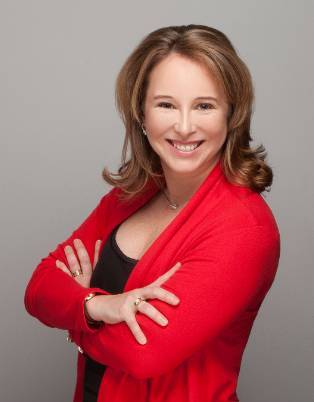
Dr. Marie Alcock
Dr. Marie Alcock is an educational consultant, speaker, and author who specializes in the fields of curriculum, instruction, and assessment. She has worked with schools and organizations both national and internationally to implement the best practices in education. Alcock is the president of Learning Systems Associates, a consulting group that supports schools and districts as they transition to contemporary learning models. She is the founder of Tomorrow’s Education Network ‐ a nonprofit dedicated to promoting student literacy.
Her work in education focuses on areas such as curriculum mapping, formative assessment, and differentiated instruction. Marie Alcock-Hubley has collaborated with notable educational experts, including Heidi Hayes Jacobs, to support schools and educators in their efforts to create a more effective and modern learning environment for their students. She has also written or co-authored several books on education-related topics.
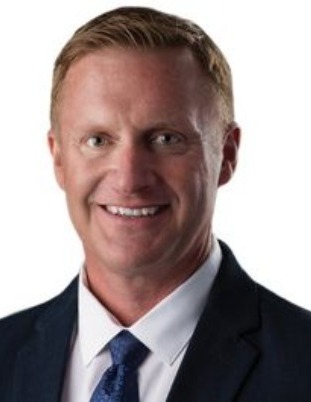
Dr. Mike Ruyle
Dr. Mike Ruyle served as a teacher, athletic coach, principal, and alternative program director for 30 years. He led the creation and implementation of the first fully functional, personalized, competency-based model of education in Montana, and is a recognized authority in the areas of innovative educational systems, mindfulness, and trauma informed care in schools. He is the author of the book The School Wellness Wheel – Addressing Trauma, Culture, and Mastery to Enhance Student Growth, and Leading the Evolution: How to Make Personalized Competency-Based Education a Reality as well as a co-author of “Cultivating Mindfulness in the Classroom,” The New Art and Science of Classroom Assessment," and "Professional Learning Communities at Work & High Reliability Schools: Cultures of Continuous Learning”
Mike's leadership experience and dynamic presentation style has made him a sought-after national and international speaker for numerous schools, districts, state agencies, and conferences. He facilitates professional development for educational institutions through Marzano Resources and Solution Tree Press. He earned bachelor of arts degrees in history and English from the University of San Francisco, as well as master's and doctoral degrees in educational leadership from Montana State University.
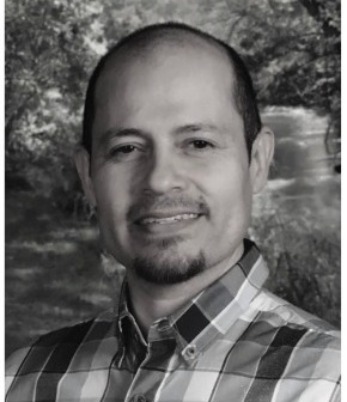
Dr. Jason Cummins
Awaachiáookaate’ (Jason Cummins, EdD), is an enrolled member of the Apsáalooke Nation and has served in Apsáalooke schools for over 20 years and was a Montana Indian Educator of the year. He is a recognized leader in shifting how schools think about Indigenous culture and language in public schools. Jason is a Clark Scholar, one of fifteen principals selected nationwide to attend the first annual Principals at ED in Washington, D.C., provided feedback for the creating of the Every Student Success Act (ESSA), and was previously recognized as an educator of the year by the MIEA. He coauthored Safe Zones, Dangerous Leadership: Decolonial Leadership in Settler-Colonial School Contexts with Ethan Chang; In Reciprocity: Responses to Critiques of Indigenous Methodologies, Considering Indigenous Research Methodologies: Bicultural Accountability and the Protection of Community Held Knowledge with Sweeney Windchief; and was a contributing author to The School Wellness Wheel: A Framework for Addressing Trauma, Culture, and Mastery to Raise Student Achievement with M. Ruyle, and served as a guest editor for the Journal of School Leadership. Jason began his academic career at Little Big Horn Tribal College and earned masters and doctoral degrees in educational leadership from Montana State University. He and his wife, Velvett, have been married over 29 years and have four sons and two grandchildren.
Session details and abstracts
| Date, time & session location | Presenter | Abstract |
|
June 16 4:30-5:30 Inspiration Hall in Norm Asbjornson Hall |
Check in |
|
|
June 16 5:30-6:15 Inspiration Hall in Norm Asbjornson Hall |
Plated dinner |
|
|
June 16 6:15-7:30 Inspiration Hall in Norm Asbjornson Hall Friday evening Keynote |
Dr. Karin Hess Keynote |
Choice, Voice, and Deeper Learning: How a Shift to Proficiency-Based Learning Can Increase Engagement and Equity Making the shift to proficiency-based learning is a multi-year journey with rewards and challenges along the way. Dr. Hess will describe how she’s been guiding schools in developing proficiency-based expectations for learning, integrating academic proficiencies and personal skills (e.g., self-direction, collaboration) in the design of performance-based assessments, and using a metacognitive approach that personalizes and deepens learning for each student. Current research and examples from projects across the United States will be shared. Materials: Keynote presentation
|
|
June 17th 8:00-8:30 am SUB Union Market |
Breakfast and networking |
|
|
June 17th 8:30- 9: 30 SUB Ballroom A |
Dr. Marie Alcock Keynote |
The Three Reasons "Why":Performance Based Education is the Future of Education. This session outlines the three most important reasons why PBE is the future and includes specific samples of how to leverage PBE in schools. Dr. Alcock explores why diagnosis and prescription level feedback to learners leads to a healthier learning environment. She explains how the effective process is actually more efficient and leads to more TIME for teachers to explore relevant and authentic learning experiences. Finally, She connects how PBE actually helps educators overtly teach children to be self-navigating learners. Take a look at the future of education. Materials: Keynote presentation |
|
June 17th 9:30-10:40 SUB Ballroom A |
Workshop I |
Dr. Marie Alcock Ballroom A
Making PBE work in Montana - what we have learned in the last ten years.
This session explores the techniques and lessons learned recently in the PBE field
of implementation. Dr. Alcock shares what schools in Montana and similar places are
doing to bring PBE to life. She will cover the "to do" and "do not do" lists that
have been gathered from experience and can't be found in the textbooks.
Materials: Self-navigation tool, Learning strategies 10,Self-navigating expert learner |
|
June 17th 9:35-10:40 SUB Ballroom B-D |
Workshop I |
Dr. Karin Hess Ballroom B-D Participants will have the opportunity to analyze how various proficiency-based tools and protocols can be used to collect data related to each of these stages: initiating components of the PB system, emerging as new structures in teaching and learning are developed (e.g., piloting PB assessments), and implementing the system using feedback loops and data collection to evaluate and revise specific core components (e.g., building a body of evidence, grading and reporting). Bring your question and we’ll collaboratively explore an approach to data collection. Materials: Action Research presentation, Tool 1A |
|
June 17th 10:45-11:15 SUB Ballroom A |
Dr. Karin Hess and Dr. Marie Alcock |
Panel discussion |
|
June 17th
|
Lunch at SUB |
|
| June 17th 1:00-2:25 pm SUB room 233 |
Dr. Josh Meyer Dr. Tricia Seifert
Dr. Sharyl Allen Deputy Superintendent, Office of Public Instruction
|
Exploring the development of proficiency-based learning and what this means for Montana
It's not about the money
|
| June 17th 1:00-2:25 pm Room 235 | Melissa Walker |
Developing an Interdisciplinary Year-Long Context to Increase Rigor and Student Engagement
|
| June 17th 1:00-2:25 pm SUB Alumni Legacy Lounge | Melissa Tovaas and Dr. Jeannie Chipps |
Prioritizing Montana's Whole Child Skill Development Competencies Alongside Content Standards
Materials: Powerpoint presentation |
| June 17th 1:00-2:25 pm Procrastinator Theater |
Andrea Meiers, Tobin Novasio, Josh Skidmore, and Pam Ask
|
From Boardroom to the Classroom: Supporting Implementation
Materials: Presentation slides |
| June 17th 1:00-2:25 pm SUB Ballroom A | Brian Kessler, Duane Schlabach, Jana Nygaard, Jon Moore, Audrey Howard, Christa Schoenfeld |
Transformational Learning in the Beginning Stages
Materials: Presentation
|
| June 17th 2:40-3:30 SUB Ballroom A | Reflection in groups If you are unable to attend Sunday, please complete the evaluation survey |
|
| June 17th 3:45-4:00 SUB Ballroom A | Walk or drive to the Museum of the Rockies |
|
| June 17th 4:00-6:00 |
Museum of the Rockies Social Gathering and Learning Experience
|
|
|
June 18th 8:00-8:30
|
SUB Ballrooms:Coffee &breakfast snacks Optional: Miller Dining opens at 7:00 am |
|
| June 18th 8:30-9:55 SUB Ballroom D | Dr. Jeannie Chipps |
“Phenomenal" science to guide a body of evidence aligned to cross-cutting concepts
Materials: Presentation slides
|
| June 18th 8:30-9:55 SUB Ballroom A | Jenny Combs, Andrea Meiers, and Dr. Tricia Seifert |
“Standards-based grading and reporting? No way! Oh, maybe?"
Materials: Presentation slides |
| June 18th 8:30-9:55 SUB Ballroom B | Strengthening Pre-Service Teacher Preparation: Sharing from MT colleges and Universities facilitated by Dr. Kris Olsen |
Dr. Kristofer Olsen, Montana State University Dr. Stevie Schmitz, Rocky Mountain College Dr. Kari Dahle-Huff, Montana State University-Billings Dr. Estee Aiken, University of Montana-Western Dr. Amy Smith, Montana State University-Northern
|
| June 18th 8:30-9:55 SUB Room 235 | Moderator: Dr. Josh Meyer |
Samuel Boateng - Equipping educators for a more thorough implementation of individualized instruction in rural schools
LeAnn Lorenz - Competency Based Education in Practice, Middle School Math
Megan Casey - CBE (Competency Based Education) examples in a secondary social studies classroom
Melissa Walker and Samantha Bissell - A Shift to Standards-Based Instruction: Belgrade School District's Journey
|
|
June 18th 10:05-10:50am SUB Ballroom A |
Reflection, evaluation, and action planning: please complete the following evaluation survey |
|
|
June 18th 10:50-11:50am SUB Ballroom A |
Dr. Mike Ruyle and Dr. Jason Cummins Keynote |
The School Wellness Wheel: Raising Student Achievement through Healing & Resiliency
Centered Schooling Society in general, and traditional schools in particular, have been reluctant to come to terms with what trauma really means. We are only now beginning to appreciate and deeply understand the impact that developmental trauma and toxic stress can have on people’s brains, bodies, and lives. It is well known that trauma and toxic stress can, over time, damage the brain. In response, a natural question can be asked concerning whether or not there are things we can do to reverse this damage and help heal those same brains? The research clearly indicates that we can. Schools can help repair and strengthen neurophysiology. The great challenge confronting schools is how to balance the expectation for educational excellence and academic success with a safe and supportive environment that can provide kids with ways to heal their brains and also build their capacity for resilience. The School Wellness Wheel brings the science of toxic stress and trauma into mainstream school systems, to help people learn a host of skills and strategies that could potentially boost synaptic plasticity in the brain - which can, ultimately, facilitate healing, build resilience, and help students engage in deeper, authentic learning.
Materials: Keynote presentation, Padlet |
|
June 18th 11:50-12:00pm SUB Ballroom A |
Concluding remarks |
|
Staying in Bozeman
There will be 100 on-campus dorm style rooms available on a first-come, first-served basis covered by a grant at no charge, with preference given to speakers/presenters. We will announce any availabilty for attendees in May. Information to reserve space through conference services will be forthcoming.
Hotel blocks
We are also excited to share that two local hotels have created a room block for our conference at discounted rates:
Please book by May 25th to receive the discounted rate.



